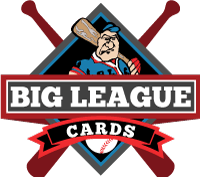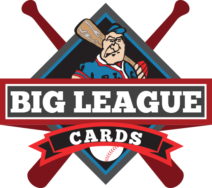Inside the Pack: Sports Card Collectors Should Make a Name for Ourselves
When I was a kid, I collected stamps and coins for several years before I collected baseball cards. Before I was born, my grandparents owned a small greeting card and gift shop, and in its later years began selling stamps and coins to drum up business. So, as a youngster, my grandfather began sharing the collection with me. We went to stamp and coin shows, got albums, used checklists, and so on — it’s really not all that different of a hobby from sports card collecting. The one big difference, one I learned early on is that stamp and coin collectors have terms for themselves. I vividly remember my grandfather teaching me the words numismatist for a coin collector and philatelist for a stamp collector. (Imagine six-year-old me running around to my friends and telling them I was a philatelist. In retrospect, it’s amazing I even had friends.)
To be quite honest, I always assumed these terms were many centuries old; after all, coins and stamps have existed for a very long time, much longer than baseball cards. Recently, I heard the term philatelist, and with the benefit of the knowledge I’ve acquired since I was a kid, I began to wonder about the meaning of the word. I like analyzing words for root words, and phila- stood out to me immediately as a word related to love. I looked it up and, sure enough, that’s it: as Wikipedia explains, the etymology is “phil(o)-, meaning ‘an attraction or affinity for something’, and… ateleia, meaning ‘exempt from duties and taxes’.” But this search turned something else interesting up for me. This term had not been around since the beginning of stamp collecting or even for an extremely long time. It was invented in 1864 by a French stamp collector, who is known solely for inventing this term. He came up with the word because he simply didn’t like the other word for stamp collecting, timbromania, which came from the French word for stamp.
I hurriedly looked up the origins of the term numismatist and found that it arrived in English in 1829. In my searches, I also discovered other hobbies have neat self-serving names. Postcard collectors are known as deltiologists. Teddy bear collectors are arctophiles. People who collect old stock and bond share certificates are scripophilists. A phillumenist collects matchboxes or matchbook labels and a tegestologist collects beer mats. It dawned on me: how do collectors of niche hobbies like collecting birds’ eggs (oologists) have a term for themselves, when folks in a hobby so popular that the Twitter hashtag #TheHobby is reserved for them don’t?
So, I set out to rectify that problem. We sports card collectors needed a name.
Methodology
Given the other terms I was finding, the parameters of a name are simple: the words should be anglicized from Greek or Latin, and either -phile, -ologist, or -ist should be used. I’m partial to -ist (which means “one who…”) or -ologist (which means “study of…”), so I narrowed my sights on a word that works well with that suffix. I also needed to find a word not currently in use for anything.
I batted around some ideas for the root word to use. The first word that came to mind is cardboard. I found the Greek word is chartóni, which I decided looks too much like “carton.” When I couldn’t find a proper Latin translation, it occurred to me that cardboard is a fairly new material and wouldn’t have the same ancient-era root words as the other hobbies I found. I moved on to other words. Wax came to mind, evoking wax packs, but we don’t actually collect wax. Sports is an obvious one, but while the Latin word for sports, ludis, lends itself to a term like ludist, that word already has many Google search results and slang meanings, and while ludiphile isn’t a word, a Google search instead returns results for ludophile, which is a person who loves games and puzzles (another hobby with a name for themselves!). The Greek word for sports won’t work either: it’s athlitismós, and any variation will be too close in nature to athlete or athletics.
Options
Thinking harder, I made a list of some words that I thought could work well. The first one that stuck out to me was trading card. While trading cards didn’t exist in ancient times, the words for trade and card certainly did: kárta synallagís. The first word is too obviously card, and wouldn’t lend itself well to a term we could use to describe ourselves. The second word would, though. On its own, synallagís means a transaction or mutual exchange of material. Synallagist, then, would roughly mean “one who trades or transacts,” which sort of perfectly describes our hobby.
I thought I’d settle on that term. But wait — what about hobby? After all, here I am lamenting that our hobby is referred to as #TheHobby, and I haven’t thought about using that word! The Greek word for hobby, chómpi, is less-than-inspiring, though, and sounds more like someone who loves to eat than who collects sports cards. The search suggested another word: apaschólisi, which means pastime. This has some promise, as it is a unique enough word that lends itself to an -ologist or -ist suffix. Apaschologist has a nice ring to it, and would roughly mean “the study of pastime,” which works on two levels: collecting as a pastime, and baseball, which is our national pastime.
So, there you have it: two options for sports card collectors. Both have Greek roots, both describe our existence as hobbyists, and neither turns up a single Google search result. Either would make a great name. So, card collectors, which term do you prefer to be known by: synallagist or apaschologist?




